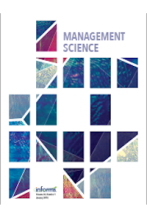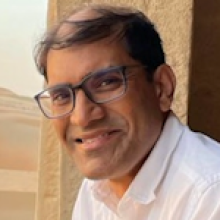In many contexts, individuals make decisions without full knowledge of the rewards from the available alternatives. Faced with this uncertainty, they experiment and also try and learn from the experience of proximate others.
The experiments individuals undertake, the information that these choices generate, and its social diffusion, are consequently a matter of first order importance. This process has a bearing on a wide array of social, economic and political questions. In recent years, the growth of large scale social media platforms has generated practical interest in understanding the learning process in large evolving networks. In particular, a great deal of interest has centred on the possibility of shaping opinion and human behavior through relatively low cost planting/seeding of ideas that are then widely diffused through social networks. The fear that false information may take hold in a population has given rise to the popularity of the term ‘fake news’. As a result, in the popular imagination, there appears to be a close connection between the rise of the large scale networks and the prevalence of fake news.
Our goal is to develop a better understanding of the process of social learning in large scale social networks. We propose to do this by conducting experiments with human subjects. The proposal studies a setting in which individuals form links and build networks and then use these networks to share information. Our interest is in understanding how the economic environment shapes the formation of the social networks and how the structure of the network in turn shapes the social learning process. We then examine the circumstances under which individuals can be misled – through a combination of network formation and poor learning – into choosing the wrong action through deliberate intervention by an external party.
Two aspects of the proposal are innovative: one, we will conduct large scale experiments on social learning that will involve up to 100 subjects, and two, we will study the formation of networks and the diffusion of information on networks within a common framework.
Learning in Networks: An Experiment on Large Networks with Real-World Features
Learning in Networks: An Experiment on Large Networks with Real-World Features, Syngjoo Choi, Sanjeev Goyal, Frederic Moisan and Yu Yang Tony To, Management Science (2023).
Subjects observe a private signal and make an initial guess; they then observe their neighbors’ guesses, update their own guess, and so forth. We study learning dynamics in three large-scale networks capturing features of real-world social networks: Erdös–Rényi, Stochastic Block (reflecting network homophily), and Royal Family (that accommodates both highly connected celebrities and local interactions). We find that the Royal Family network is more likely to sustain incorrect consensus and that the Stochastic Block network is more likely to persist with diverse beliefs. These patterns are consistent with the predictions of DeGroot updating. It lends support to the notion that the use of simple heuristics in information aggregation is prevalent in large and complex networks.


